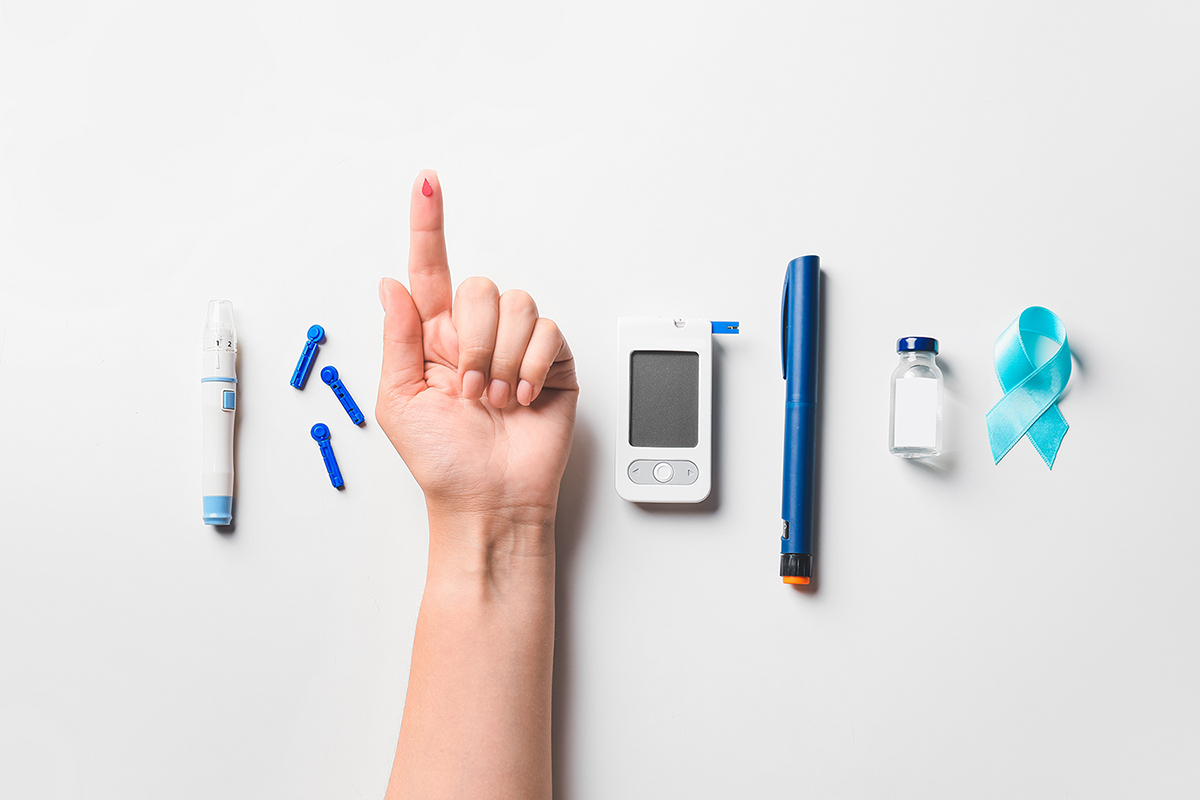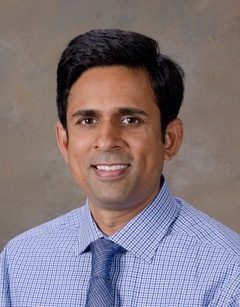
November is National Diabetes Month, and for 45 years, this campaign has sought to raise awareness to one of the most pernicious diseases of our time. Diabetes affects the body’s ability to produce insulin, a hormone vital to the transformation of food into usable energy.
The focus for this year’s National Diabetes Month is around both preventing diabetes and bringing awareness to prediabetes. Type 2 Diabetes, which accounts for roughly 90% to 95% of all cases, can often be prevented in its earliest stages.
More than 1 in 10 Americans live with this disease, while 1 in 3 are at risk with prediabetes, according to the CDC. Millions of Americans not only manage, but fight, live and thrive despite their condition, thanks to the efforts of doctors, researchers and the many others who bring awareness and raise funds.

Venkata Budharaju, MD, is the medical director of the Diabetes Program at St. Anthony’s Hospital in St. Petersburg, part of the BayCare Health System. He is a board-certified endocrinologist at Florida Endocrinology & Diabetes Center in Pinellas County. He completed his clinical training in Endocrinology, Diabetes and Metabolism at the University of Iowa in 2011.
Dr. Budharaju sees patients with Type 1 and Type 2 diabetes both in the inpatient and outpatient setting with a focus on lifestyle medicine, weight management, complications prevention and the use of technology in diabetes care.
GGTB: Why is it important to raise awareness about diabetes, especially during National Diabetes Month?
Dr. Budharaju: Diabetes is a chronic health condition that affects more than 30 million adults in the United States, according to the Centers for Disease Control and Prevention. This is an especially momentous year in diabetes history, marking 100 years since the discovery of insulin. This year, the American Diabetes Association is focusing on driving awareness for the 1 in 5 adults who are living with diabetes but don’t yet know it, through resources, education and materials. The message is that early detection helps prevent life-altering complications. We want to encourage people to take the diabetes risk tests available online or with your health care provider.
Diet, exercise, education and technology are making life with diabetes more manageable. This month, we want to encourage people to join a fitness challenge of their choice, find healthy diet recipes and learn more about diabetes technology that is available.
Small wins become big victories, and suddenly the good days outnumber the bad. This month is all about celebrating wins and encouraging people to help advocate for change.
GGTB: What kind of services for diabetes are being performed at St. Anthony’s and other BayCare hospitals in the Tampa Bay area?
Dr. Budharaju: BayCare has invested extensive resources to focus on diabetes prevention and management in the Tampa Bay community both in the inpatient and outpatient setting.
These include the hugely popular structured diabetes education and nutrition programs at 14 different BayCare facilities across the Tampa Bay area. These programs are accredited by the ADA and offer classes, workshops and self-management services, no matter where you are in your diabetes journey.
Examples of these programs include the One-on-One education appointments with a dietitian and nurses who are Certified Diabetes Educators; pre-diabetes workshops and education programs; diabetes management classes including diabetes counseling during pregnancy; and nutrition counseling and meal planning. Many of these classes also are provided in Spanish.
BayCare offers the free Diabetes Education Empowerment Program. DEEP is a six-week class that teaches people to take charge of their diabetes. Attendees meet in small groups once a week for two hours and have the option to meet one-on-one with a BayCare diabetes educator.
My personal favorite is a four-week program called “The Journey for Control: A Diabetes Management Class. The weekly two-hour class uses Conversation Maps, a series of images and metaphors, to engage people in conversations about diabetes and prediabetes health topics and provides an action plan to make lifestyle and behavior changes.
In addition to these programs, which are only a few of them, BayCare hospitals have received advanced certification for inpatient diabetes care by The Joint Commission which evaluates health care organizations and inspires them to excel in providing safe and effective care.
GGTB: What should people know about diabetes that they may not be aware of?
Dr. Budharaju: We commonly hear that people with Type 2 diabetes cannot eat sugar. It is true that people with Type 2 diabetes should eat a healthful diet, and these diets are generally low in sugar. However, it may not be necessary to avoid sugar entirely. For instance, fruits contain fructose, which is a type of sugar, but they also provide fiber and a range of vitamins and minerals.
The American Diabetes Association encourages people with diabetes to include fresh, frozen or canned fruits with no added sugar in their diet.
People with diabetes should avoid sugary drinks, though. An analysis of data from 310,819 people found that the risk of Type 2 diabetes was more significant in those who consumed sugary drinks more regularly.
It’s important to remember that swapping out real sugar with sweeteners or choosing “sugar-free” foods does not mean a food is carbohydrate free. These foods may contain sugar alcohols, which can increase your blood glucose levels. Understanding food labels, counting carbohydrates and developing a meal plan is a vital part of maintaining normal blood glucose levels.
It is also a myth that once someone with Type 2 diabetes starts taking insulin they can never stop. With a strict low-carbohydrate diet and weight loss, it is quite possible to safely stop insulin therapy under close supervision and support from your health care provider.
Research has shown that there is a relationship between Type 2 diabetes and weight gain and obesity. However, it is possible to have Type 2 diabetes without being overweight or obese. Around 12.5% of adults with Type 2 diabetes are not overweight. It is possible that a lean adult who presents with new-onset diabetes may have latent autoimmune diabetes, which people sometimes refer to as “Type 1.5” diabetes.
To learn more about BayCare’s diabetes education and management programs, visit BayCare.org/services/diabetes/diabetes-education-and-management.
Article written by Ryan Walsh





